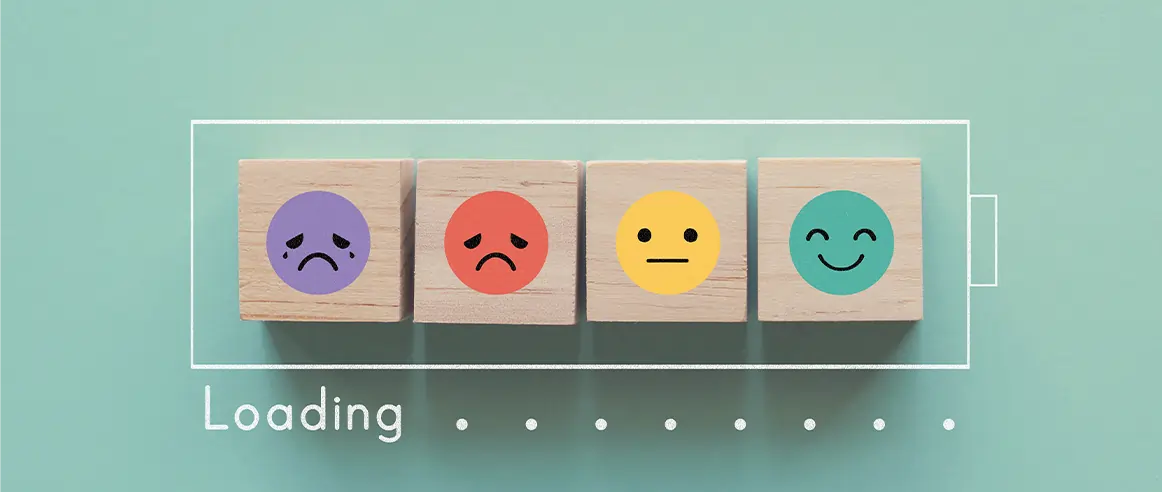Written by Jaden Parker
In Sweden, self-reported mental health concerns have risen from 31 to 42 percent over the span of a decade. In 2022, it was reported that a little over 60% of people were feeling tired in connection to mental health. Less than half of people with mental health issues have anxiety, and roughly 3% have diagnosed depression. These numbers are great in comparison to the statistics we’ve seen from previous countries; but that is in no way stopping Sweden from improving their mental wellness.
The Public Health Agency of Sweden takes mental health seriously, especially when it comes to suicide prevention. For 2024, they gave a sum of roughly 90 million SEK ($8,590,000 USD) to multiple NGOs involving mental health in the form of state grants. These NGOs spread awareness and educate people at the regional and municipal levels. These actions are all outlined in their National Action Program for Suicide Prevention, which has been traded out for a new proposal presented last year in September. The Public Health Agency worked with the National Board of Health and Welfare to create a proposal that combined mental wellness and suicide prevention along with the country’s goals. These efforts are no doubt the reasons why the suicide rate has continued to decline since 1990. To boost mental health in youths—a majority of the aforementioned 42 percent—Sweden is focusing on apps to help guide them through lifestyle changes.
Sweden is a country to admire when it comes to how they approach mental health. Take for instance this person’s experiences with Sweden’s approaches. Either way, there are still some issues to address. If you or someone you know is in Sweden and is struggling with mental illness, remember that you are not alone. Check out the resources below for more information on how to get help.
BRIS, a 24/7 chat/phone line for youths struggling with mental illness at 116-111
Spes for survivors of suicide loss at 020-18-18-00
Nätvandrarchatten, Swedish chat line for youths open Monday, Wednesday, Sunday 1pm-4pm
Mind Sjalvmordslinjen, a 24/7 line for anyone struggling with suicidal ideation at 90101
The Rainbow Line for LGBTQIA+ open Tuesday and Thursday 12pm-3pm at 0770-55-00-10
For years, Denmark has ranked in the top ten for being one of the happiest countries in the world. According to a Danish study in July of 2023, roughly 20% of Danish adults have symptoms of mental illnesses with depression and anxiety being the most common. So, how does Denmark maintain relatively low suicide rates and solid awareness of mental illness? Well, their government focuses on it through a multitude of legislative efforts.
In 2022, the Danish Government pledged to make mental wellness a priority, resulting in a 10-year psychiatric plan. Whether the ONE OF US national programme is promoting awareness to fight against mental health stigma or promoting hygge (hoo-ga) activities in the winter (meaning a sense of coziness), Denmark is making leaps and bounds in establishing a proper work-life balance, especially with their 5 day work weeks of 37 hours on average. Obviously, there will always be people suffering from mental illnesses. It’s normal and human to feel uncomfortable emotions. How we deal with them is what sets us apart from others. If you or someone you know is in Denmark and struggling with any sort of mental illness, direct them to the resources below. You are not alone; you don’t have to suffer alone.
Livslinien for people in Denmark at risk of suicide at 70-201-201
Psykiatrifonden helpline for confidential mental health advice at 39-25-25-25
Startlinjen has mental health support from 4pm to 11pm at 3536-2600
According to a study in 2018, it is mainly Norwegian teens and young adults affected by mental health disorders. It was reported that 16.5% were experiencing psychological distress. A direct relation to this problem is an increase in impoverished children. While Norway does have universal health care, outpatient and long-term care have to be partially paid for out of pocket, making it difficult for low-income households to receive the care they may need. On top of financial hardship, it has been determined that a lot of Norwegian university students are struggling with mental illnesses. In early 2023, 10,000 Norwegian students were surveyed, reporting back that 17% of female students and about 11% of male students had suffered from major depression or a major depressive episode in the previous 30 days of taking the survey.
While money is being put towards addressing this issue, it seems that Norway isn’t yet making any concrete efforts to address the seriousness of the mental health crisis when it comes to those who can’t access it due to financial reasons. In this article, it lays out how there is a relationship between those struggling with mental health and employment, if you’re interested in learning more. If you or someone you know is struggling with mental illnesses and needs a Norwegian resource, contact the helplines below.
Mental Helse Hjelpetelefonen has anonymous call services at 116-123 (parent support press 2, student support press 3)
Kirkens SOS, a 24/7 confidential support system on the phone or over chat at 22-40-00-40
Alltidhjelp, a support system offered in Danish, English, Norwegian, and Swedish; text at +47 48425289 or call at 02356
Kors På Halsen for children and youths up to age 18 at 800-333-21
Mannstelefonen helpline specifically for men at 22-34-09-60 open Monday through Friday 11am to 2pm
After COVID, Switzerland, like all countries around the world, faced a decline in mental health. In 2021, it was reported that people aged 10 to 24, with a majority being women and girls, had a rise in mental disorders leading to the highest cause for hospitalization, a 26% increase from the year prior. For males in that age group, it only increased by 6%. Despite these alarming shifts, Switzerland approaches mental wellness in a lot of ways.
Swiss mental health treatments are incredibly thorough, offering different types of therapy in hospital stays for psychiatric illnesses. They emphasize rehabilitation and reintroduction as the goals for in-patient treatment retreats. Furthermore, therapy is incredibly affordable. Because universal healthcare is mandatory in Switzerland—with annual deductibles ranging from $450+ to $4,000 USD—insured individuals only pay 10% for therapy. For outpatient services, Swiss patients can pay up to 700 CHF ($807.75 USD) for a year’s worth of sessions. In America, the average cost per session without health insurance is $150. Even though one must be prescribed therapy by their doctor first for it to be included as something insurable, this in no way keeps people from receiving the help they need, as doctors readily prescribe these treatments.
While solutions may seem to be readily accessible, it doesn’t mean people aren’t struggling with mental illnesses. If you or someone you know is living in Switzerland and needs assistance or someone to talk to, please look at the resources below.
By canton:
Vaud helpline, 24/7 emergency number for on-call psychiatrists at +41 (0) 848-133-133
Geneva University Hospital, emergency psychiatric number at +41 (0) 22-372-38-62
Valais Hospital, 24/7 emergency number at +41 (0) 800-012-210
Fribourg, emergency line through HFR at +41 (0) 263-057-777
Neuchatel, emergency line through CUP at +41 (0) 327-551-515
Bern, emergency line for the University Hospital of Berne at +41 (0) 316-328-811
Samaritans Crisis Line, English-speaking 24/7 helpline based in the UK at +44 8457 90 90 90
Crisis Line, 24/7 mental health helpline in French, German, and Italian at 143
Pro Juven Tute, 24/7 mental health helpline in French, German, and Italian for youths at 147
While I didn’t touch on every country in the world, I did learn new things about how people are dealing with mental health. Mental illness is a human and universal problem. People all over deal with mental illnesses, and the statistics prove that it is beneficial to all of us as a human race to properly address these issues. Always know that you can reach out whenever you may need assistance. There is always someone there to help you. I can speak from experience when I say that things get better. I have dealt with depression, PTSD, and anxiety for a decade of my life. Life will change. You are not alone.









